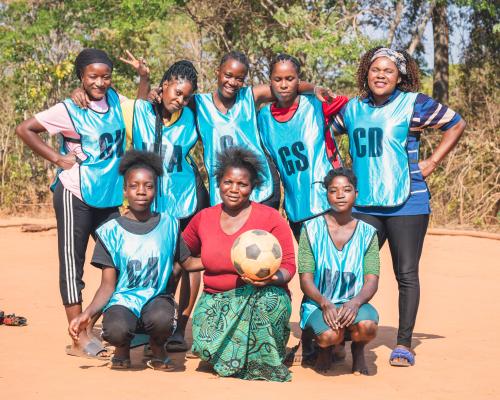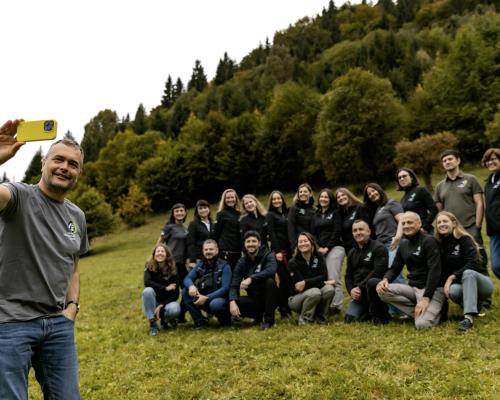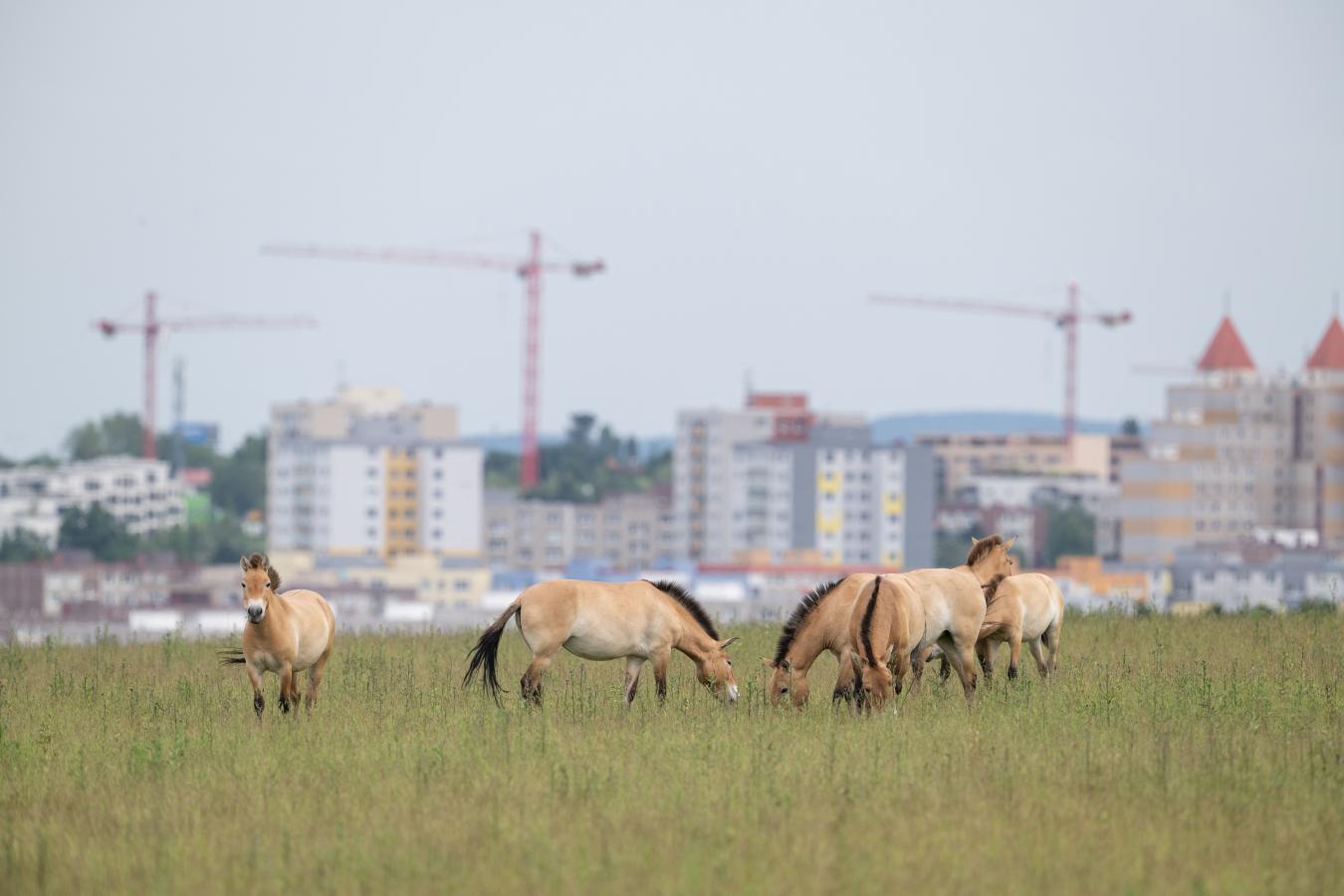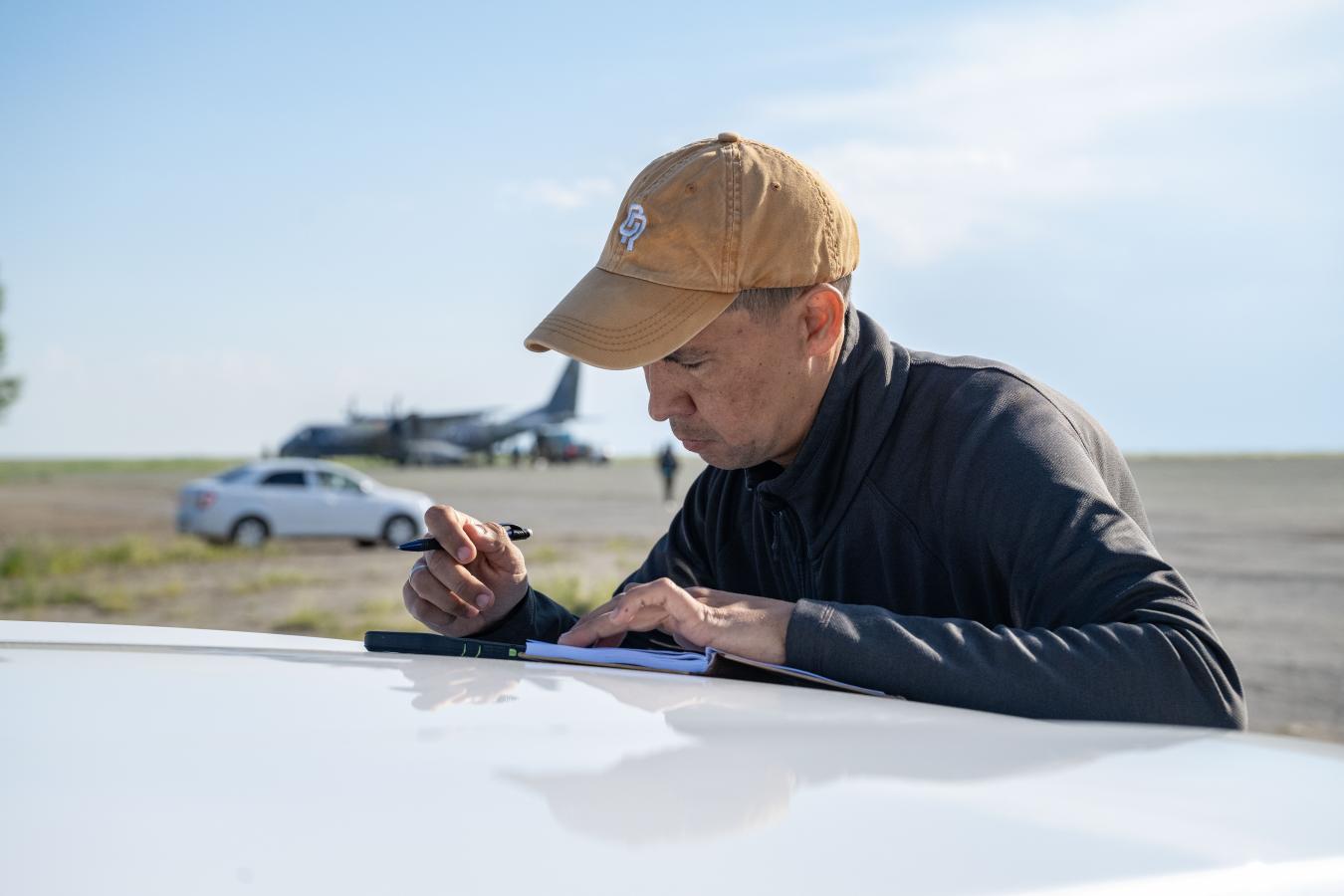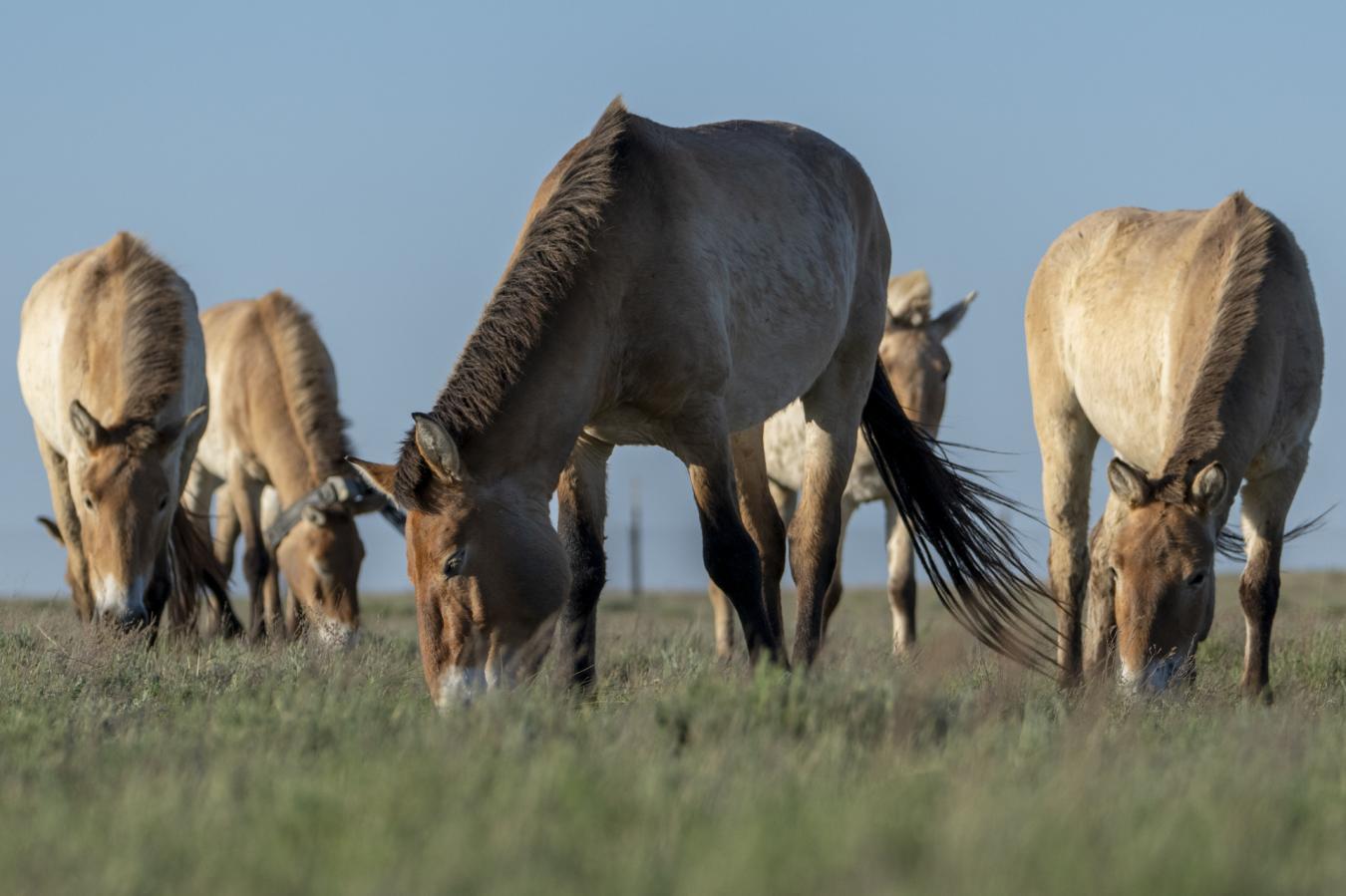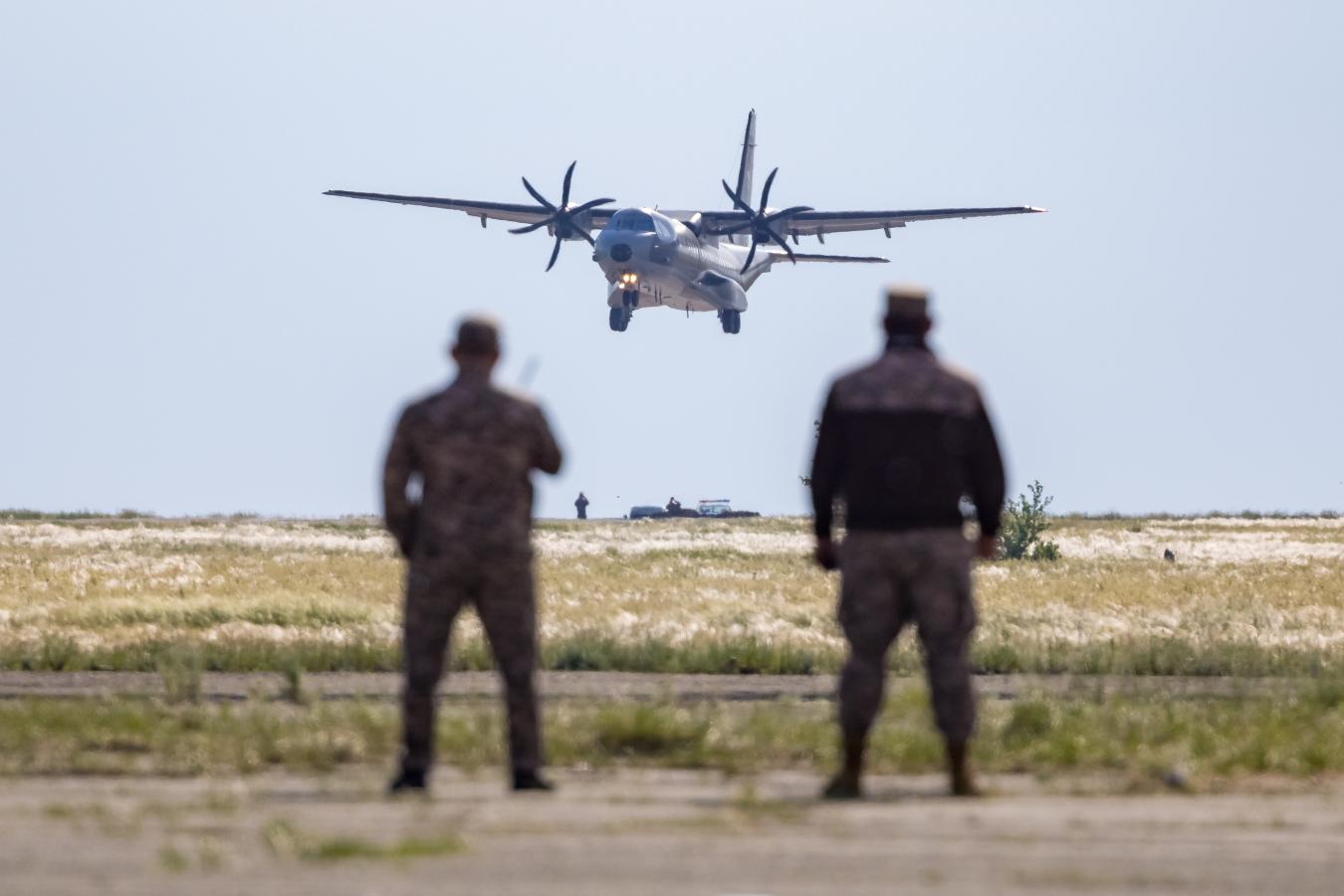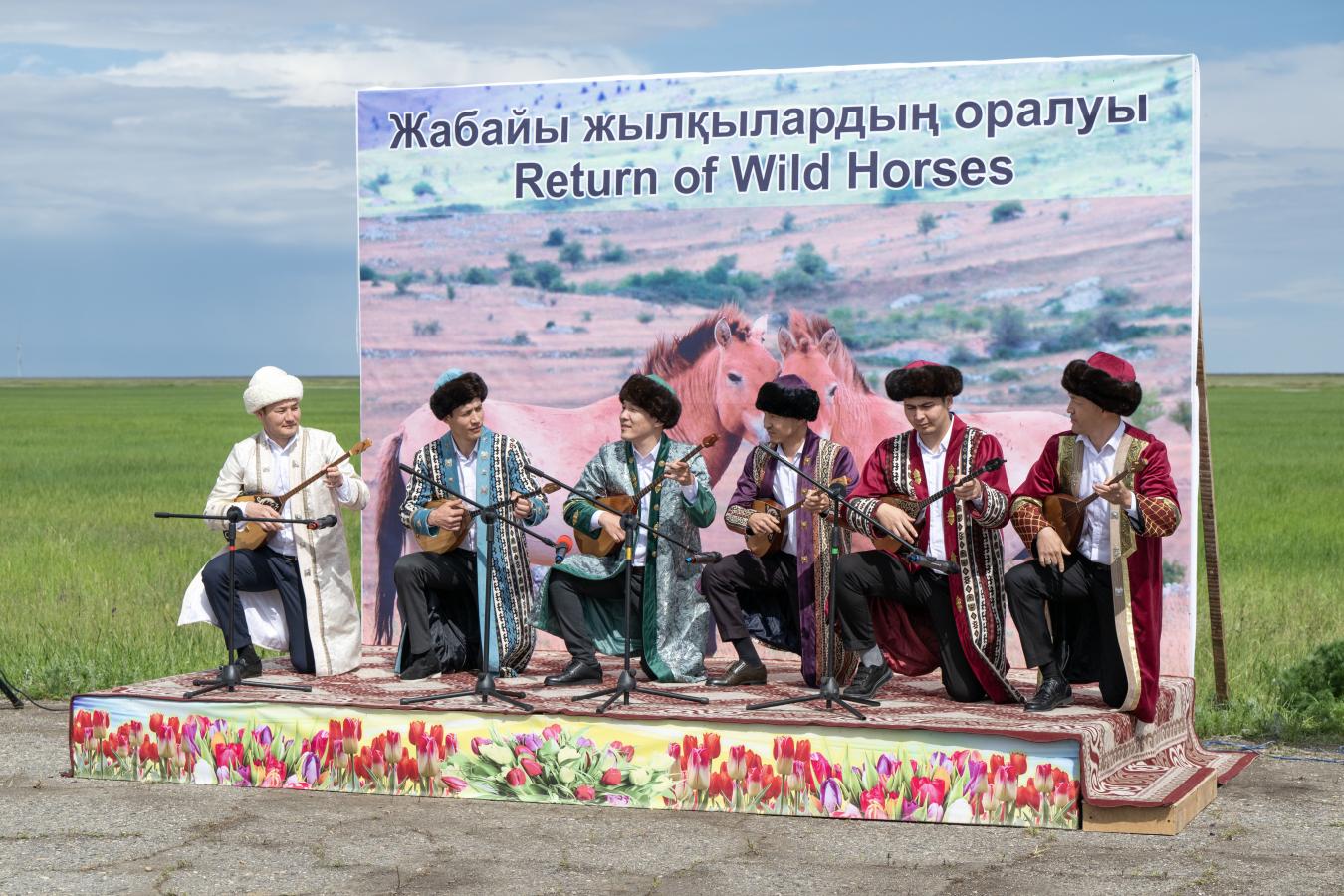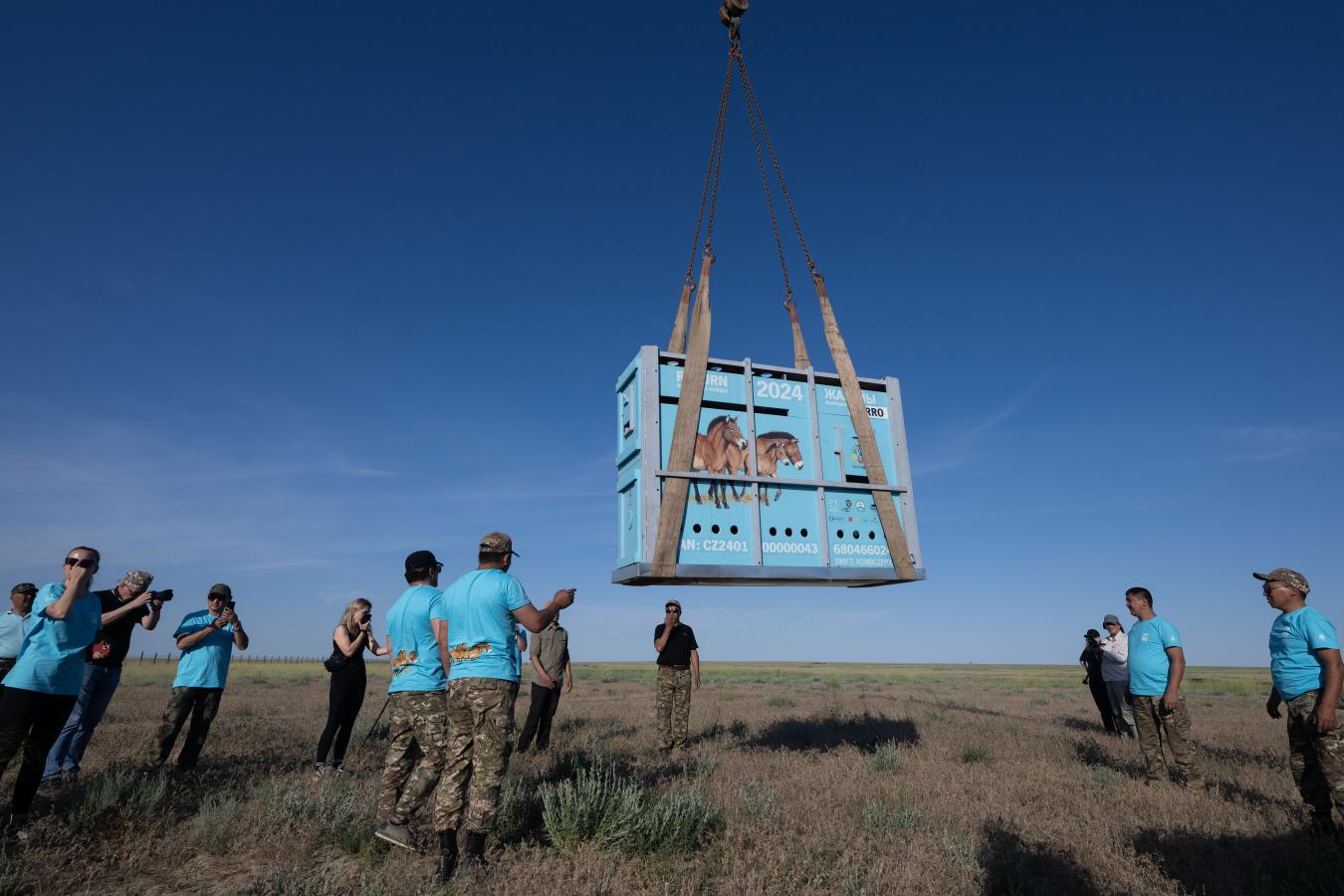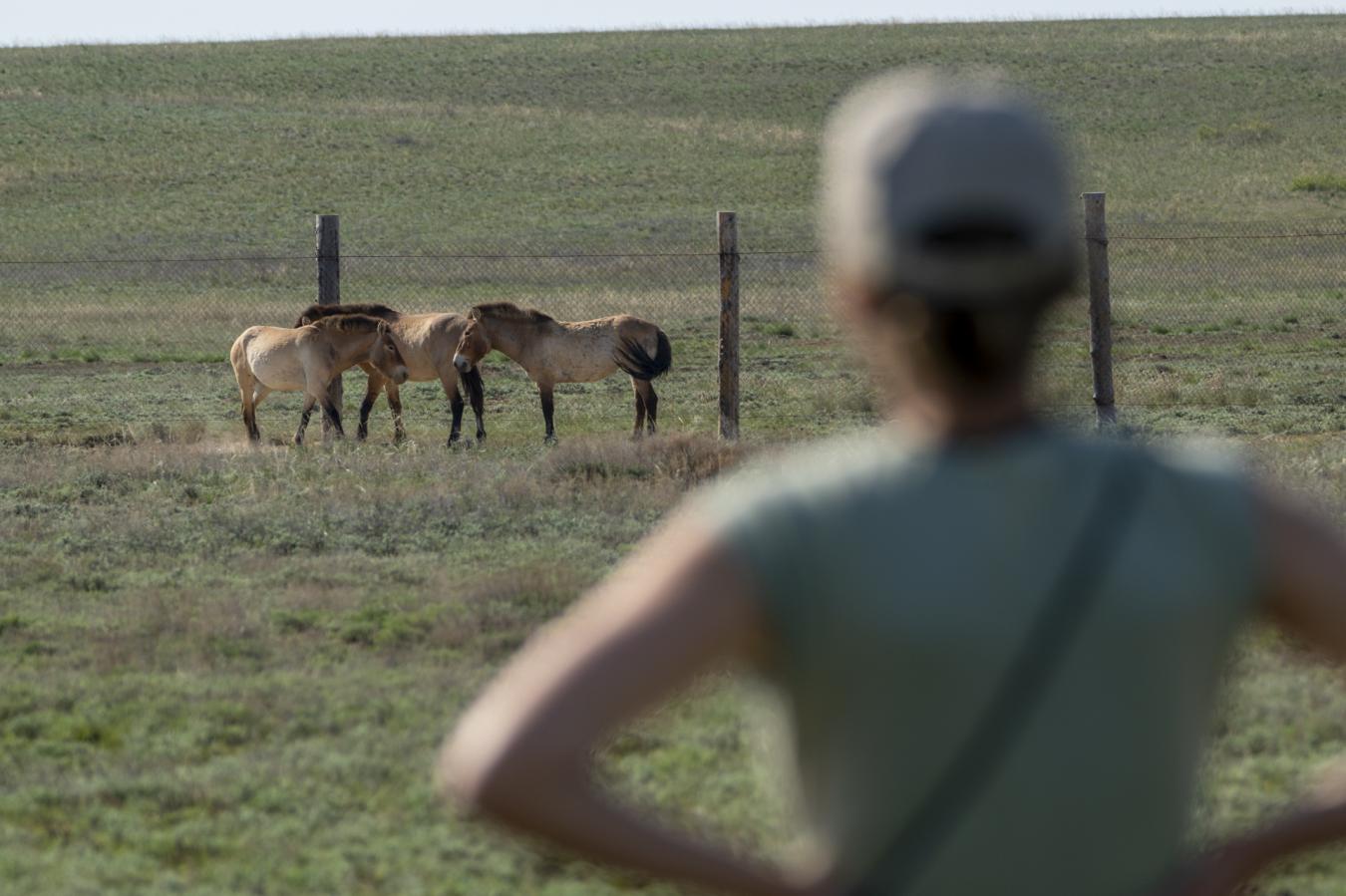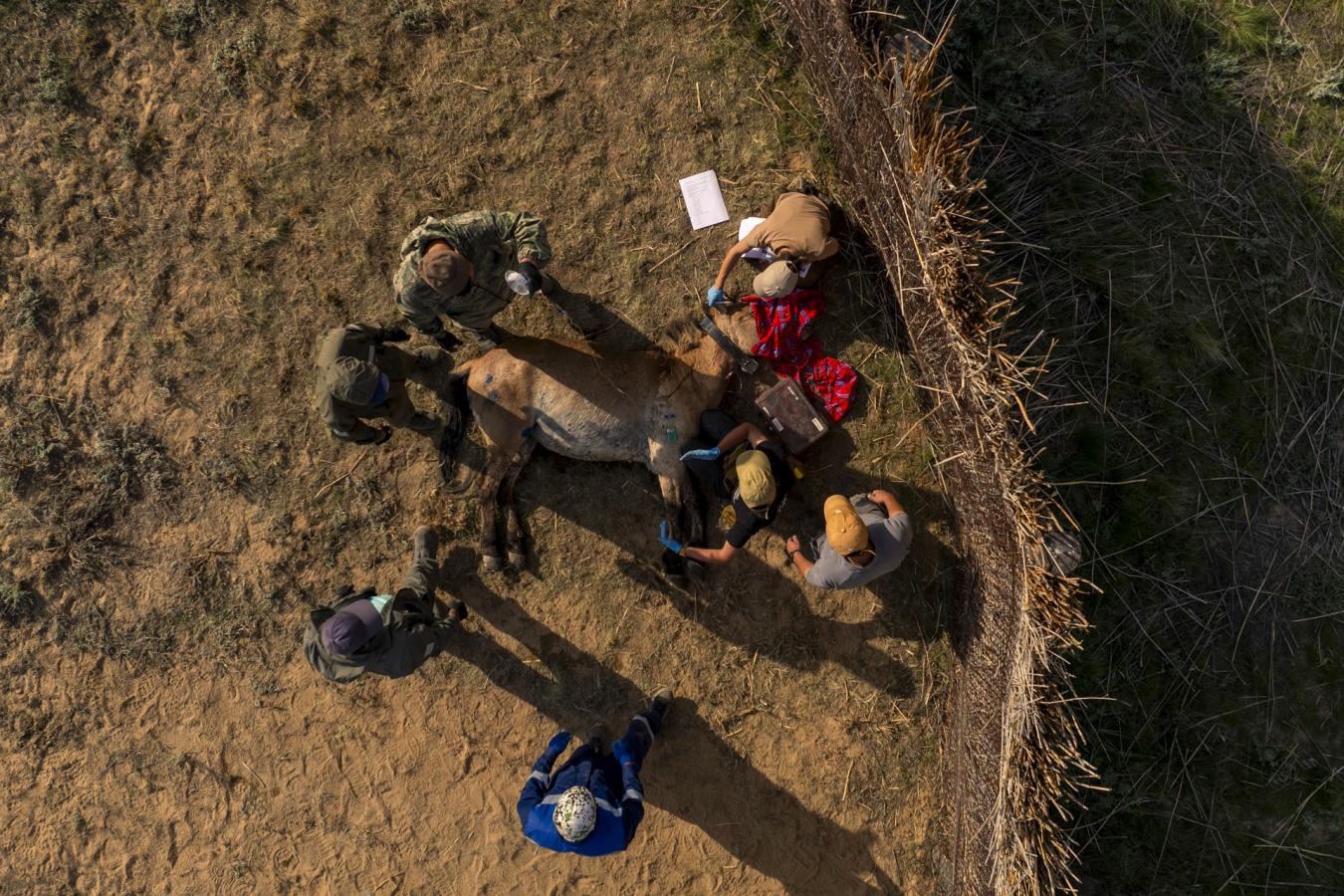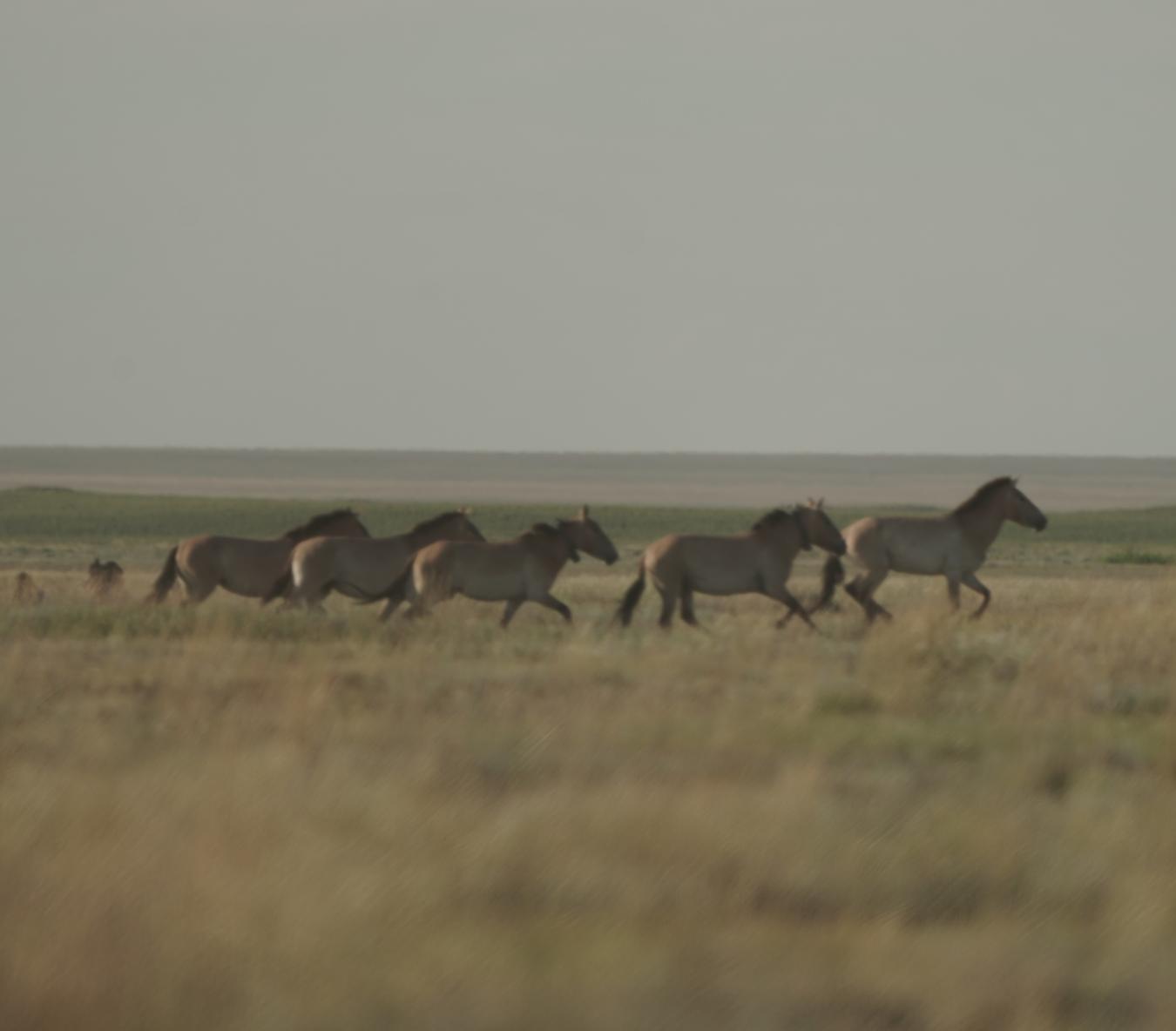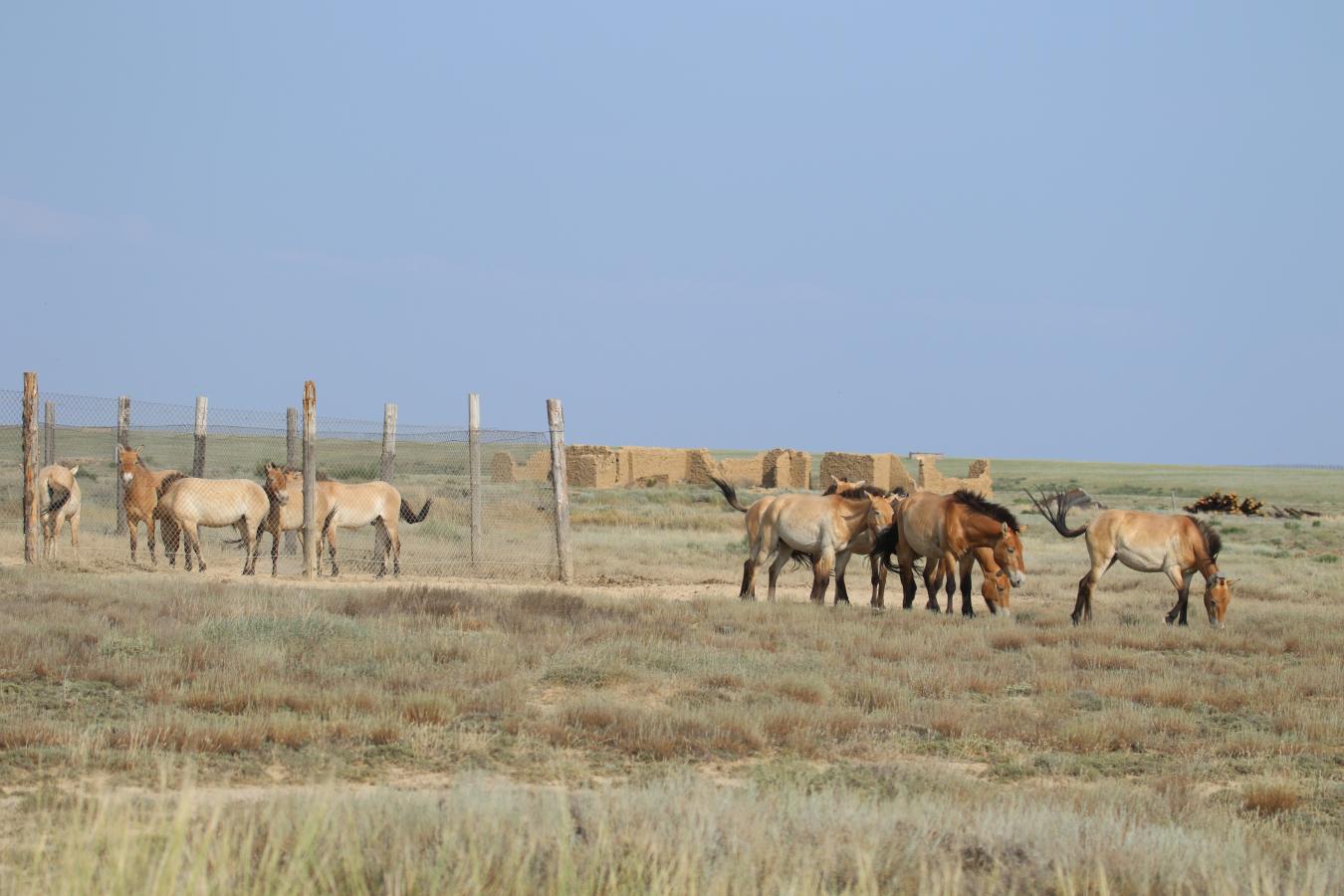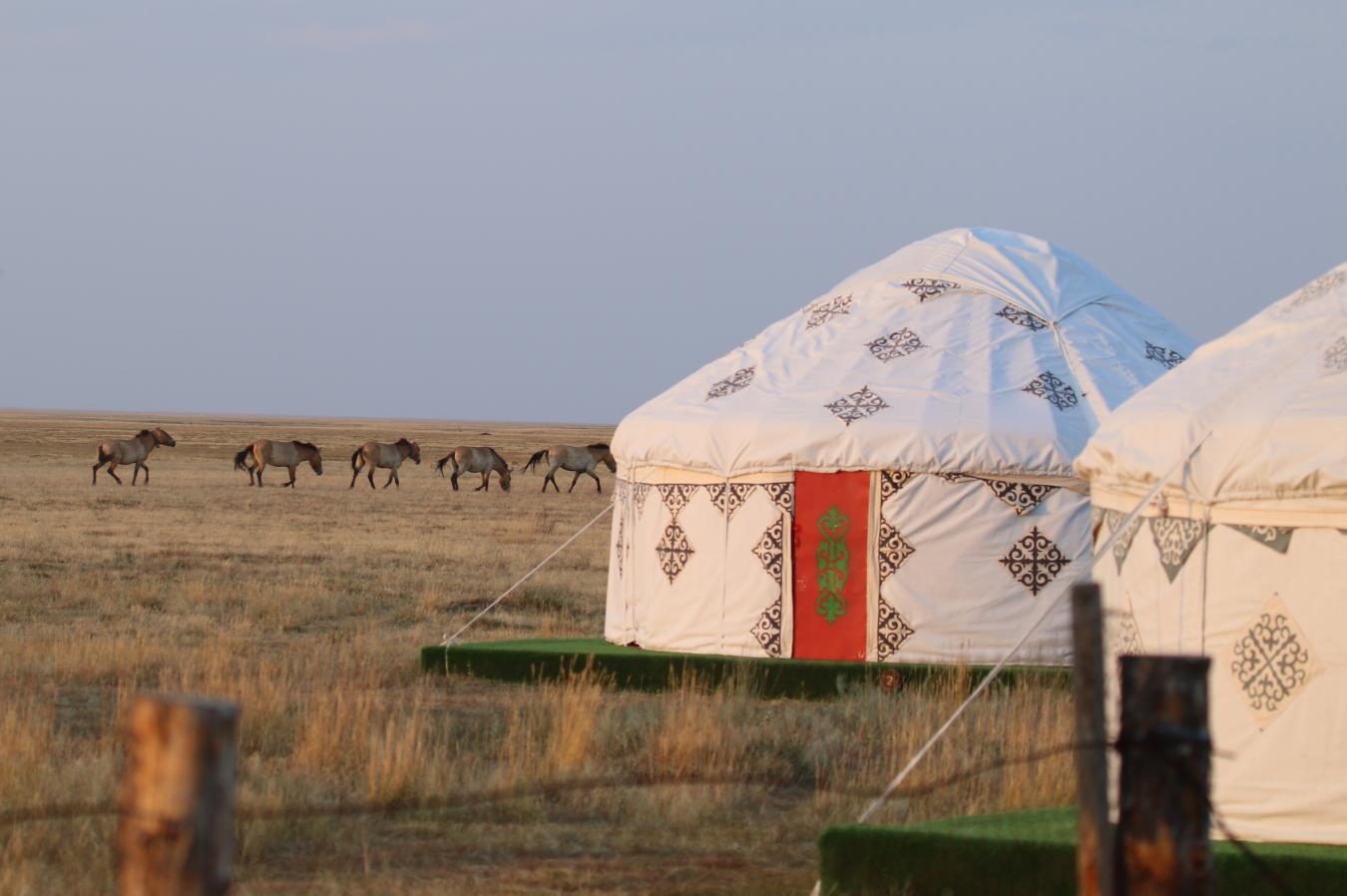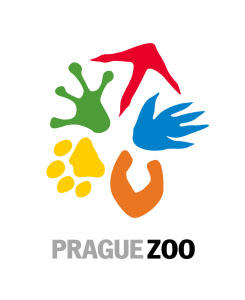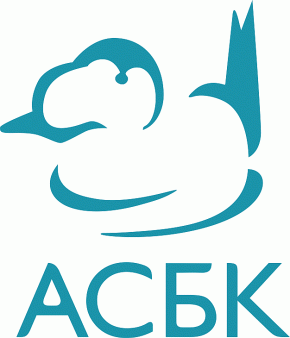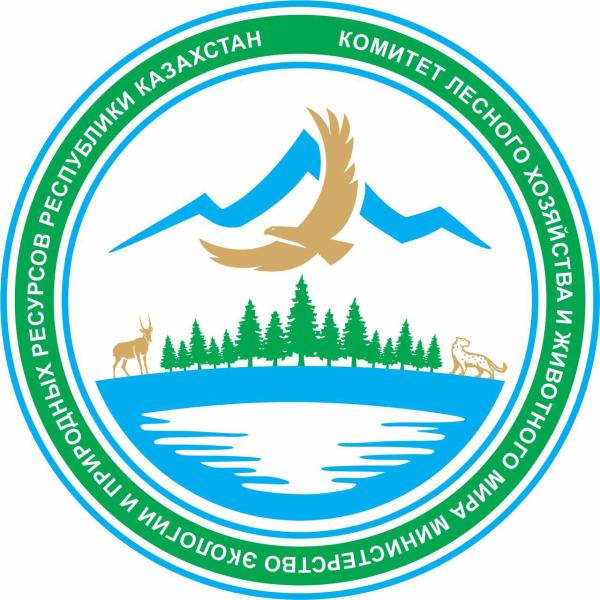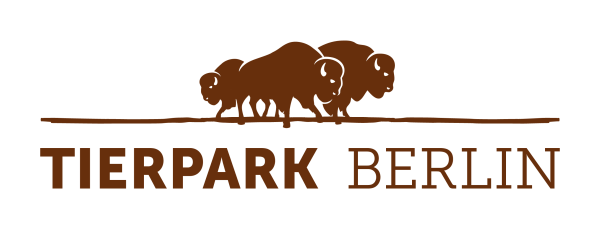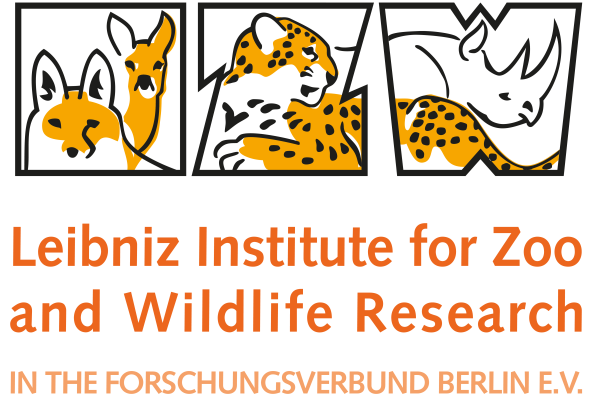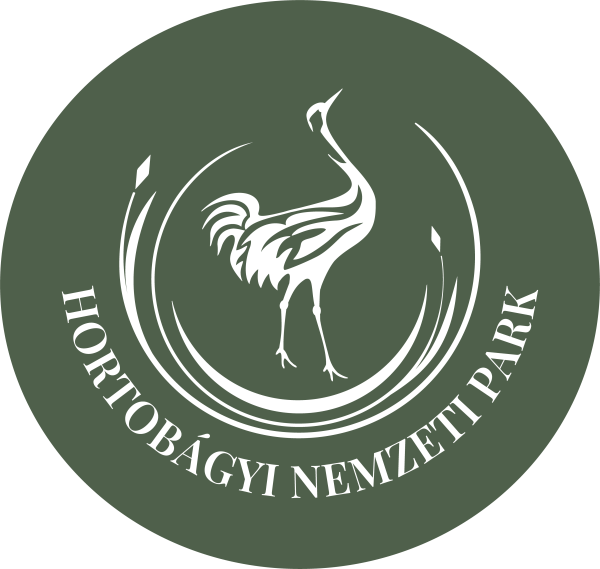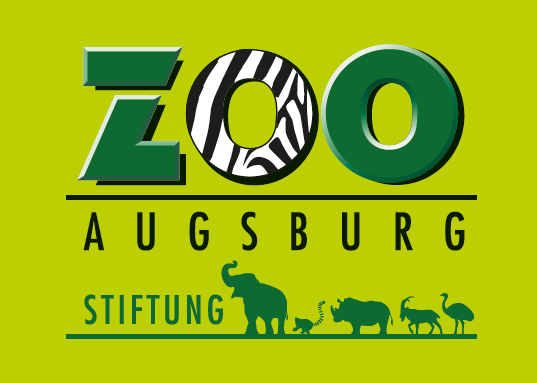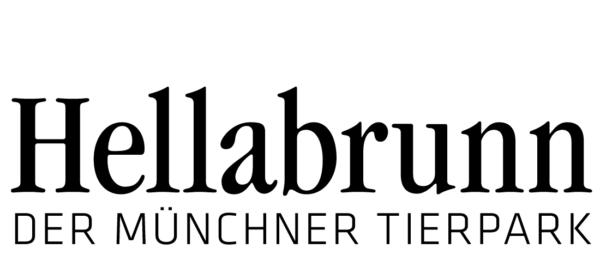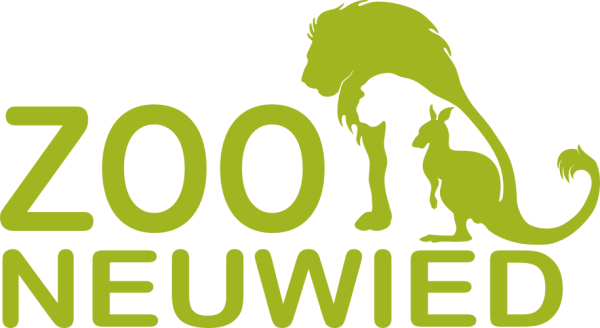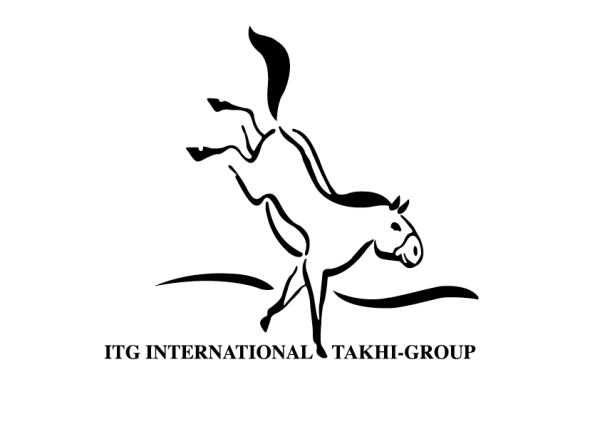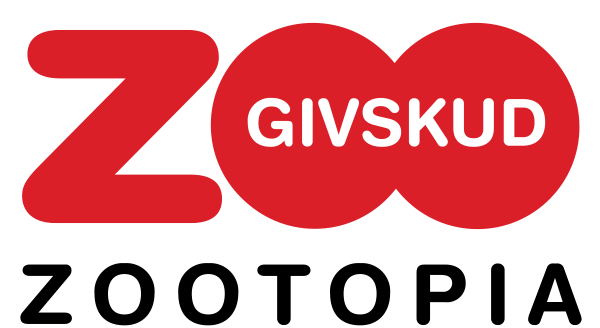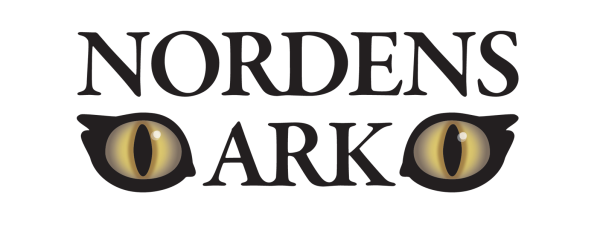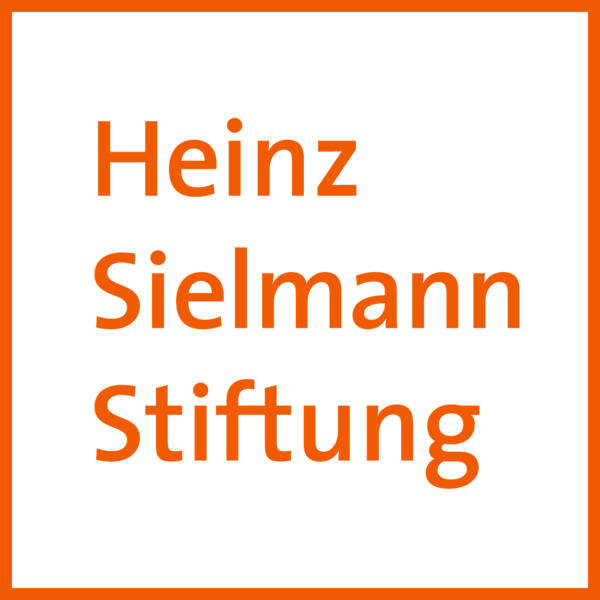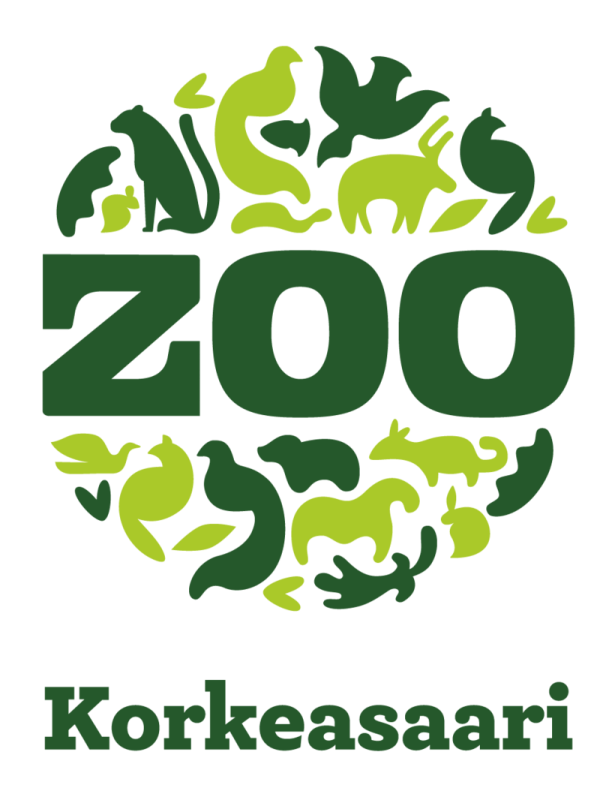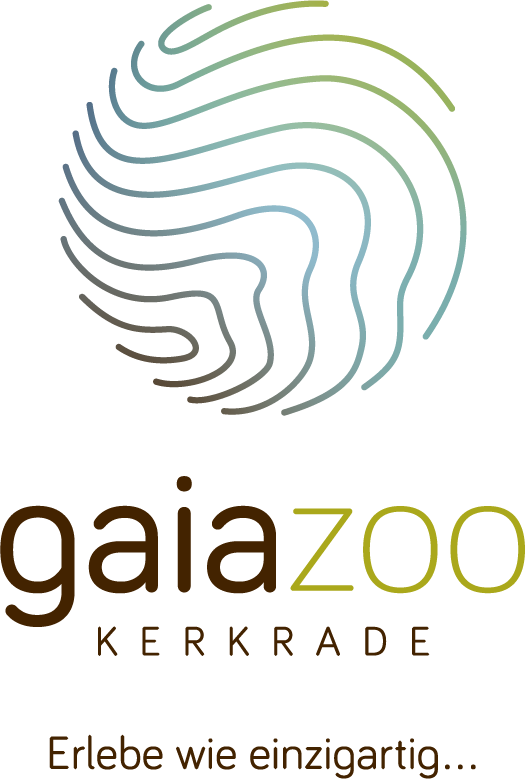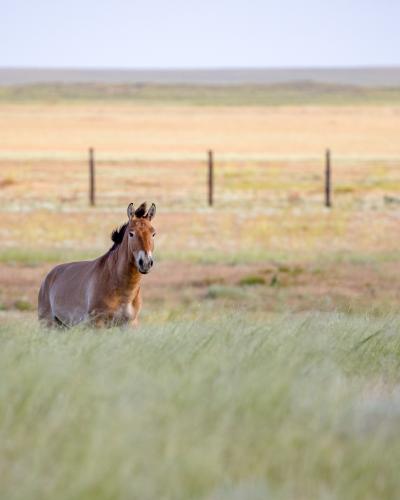„Kertagy“ – the kazakh name for the charismatic wild horse (Equus ferus przewalskii) was almost forgotten. Already 200 years ago, human pressure eradicated the ancient mammal from the Kazakh steppe. Now, we are bringing kertagys back: a return of a prehistoric species to its ancestral home. June 2025 marked a major milestone: we released the first 6 kertagy into the wilderness of Altyn Dala.
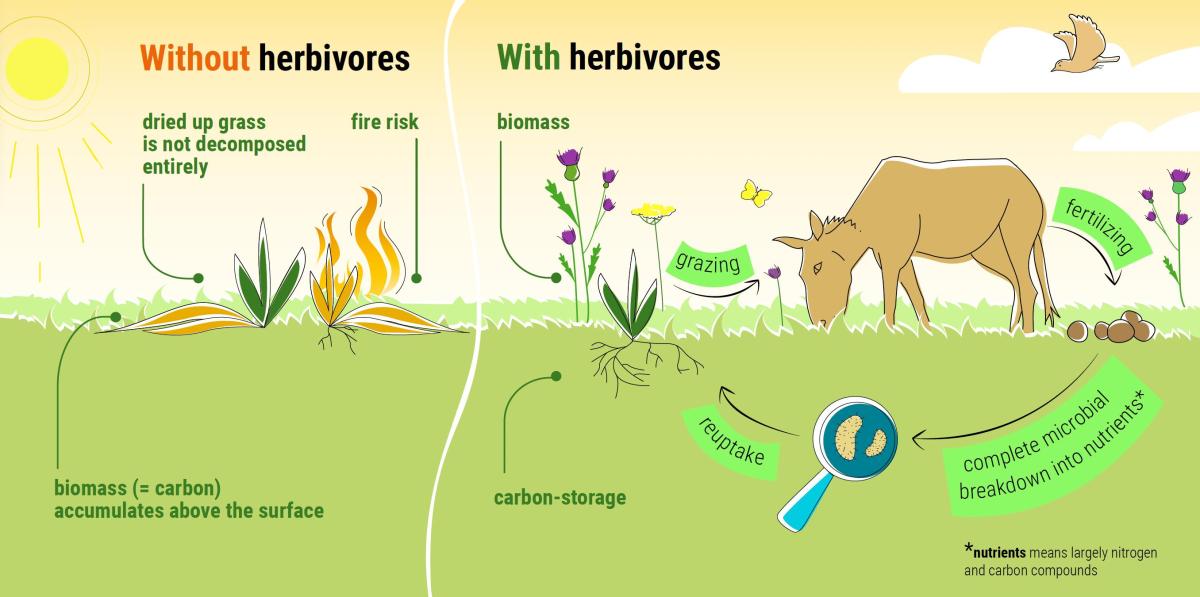
As native megafauna of the steppe, wild horses help maintain the functionality of the grassland ecosystem. Through their grazing, they help to bring the nutrients of the plant material back to the soil, prevent wildfires and through physical impact the horses create micro-habitats for insects.
The Przewalski’s horse is the last genetically wild horse on Earth. Although the species did vanish entirely from the wild in the 1960ies, several individuals endured in European zoos. Through a breeding program, a captive population could be rebuilt. In the 1990s, the first reintroductions to the wild began, first to China and subsequently to Mongolia. In 2023, the Kazakh Government initiated the return of the Przewalski’s horse from Europe to Kazakhstan.
Prague Zoo coordinates the species‘ studbook, chooses suitable horses, and leads on the international transport from European zoos to Kazakhstan. Once the horses arrive in Kazakhstan, FZS and ACBK within the framework of the Altyn Dala Conservation Initiative take over and provide a safe acclimatization period at “Alibi” reintroduction Center and in the wild.






